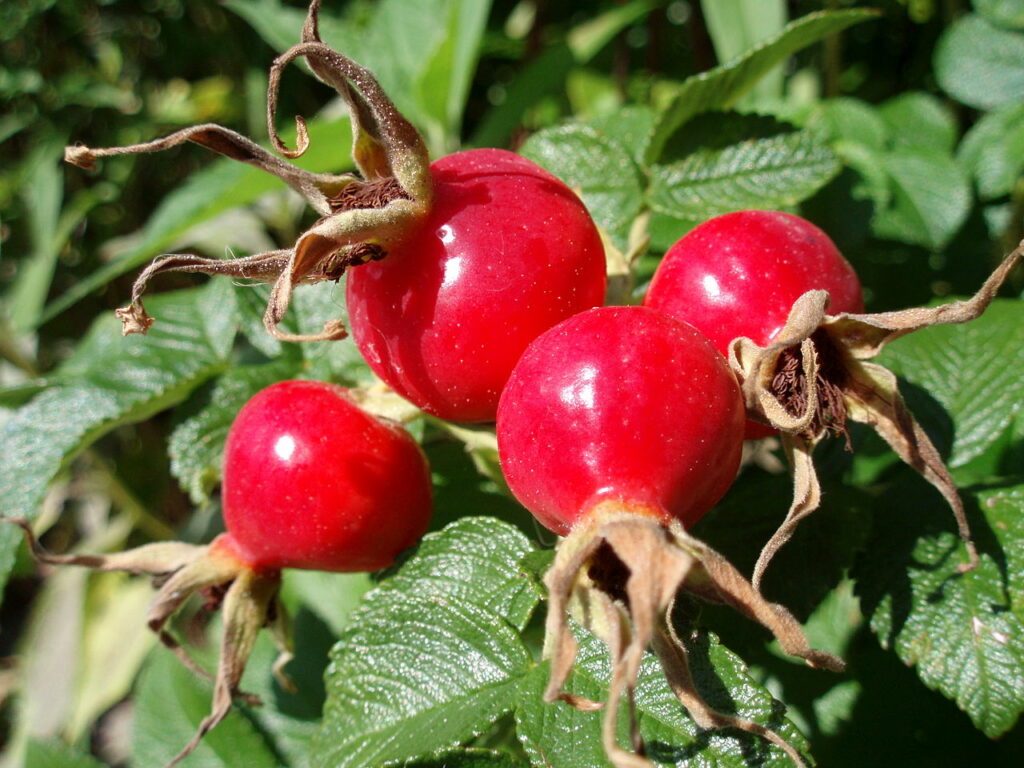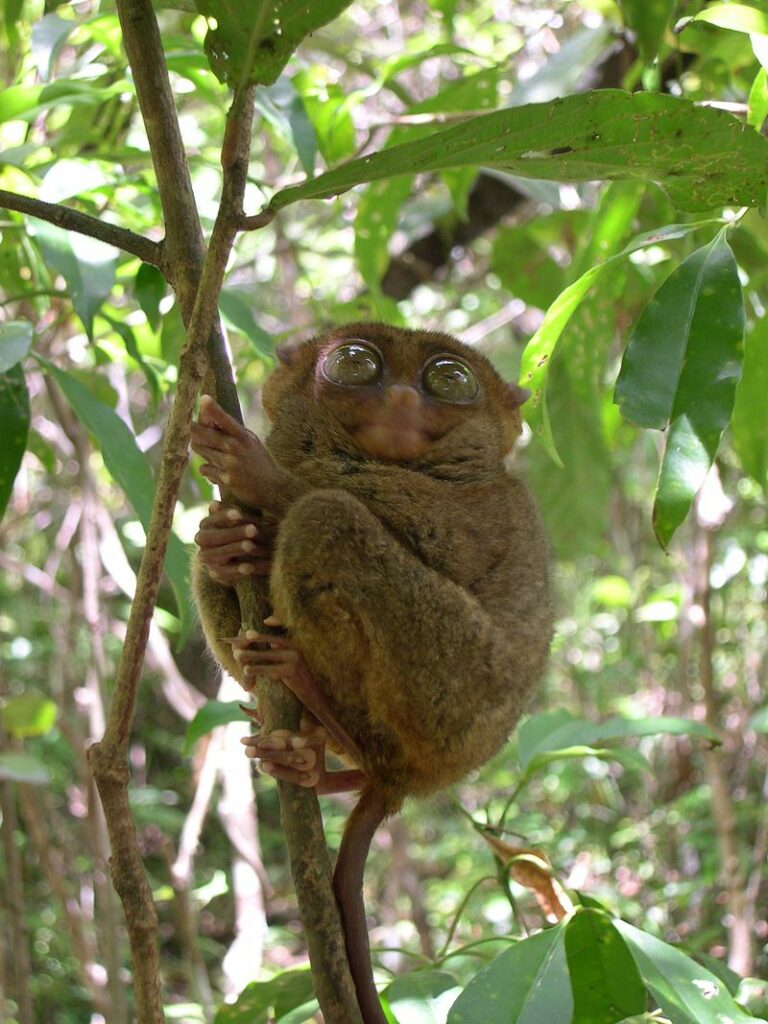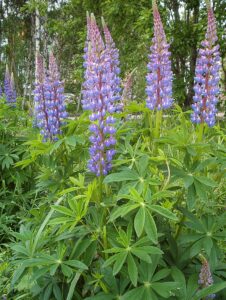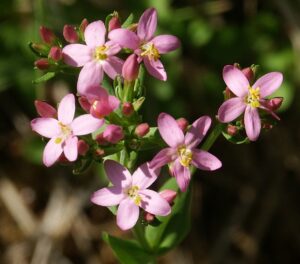Native species refers to organisms that are indigenous to a specific region or ecosystem.
Native species refer to those organisms that originated in that particular region through evolution and mutation without any sort of human interference or interaction.
Native species examples include:
- Kashmir Stag, Kashmir
- Royal Bengal Tiger, Sundarbans
- Rosehip
- Koala, Australia
- Nevada primrose
- Tarsier
- Nilgai
- Coneflower
- European red squirrel
- Walnut
- Bicoloured frog
- Large-leaved Lupine
- The panda
- European Centaury
- Oriental magpie robin
- Rafflesia
- Asian elephant
- Neem tree
- The proboscis monkey
- Snow leopard
- Rhododendron
- Trumpet vine
- Cougar
- Java sparrow
- Grizzly bear
- Eurasian lynx
- Platypus
Next, we will discuss the above-mentioned examples :
Discussion of the Native Species Example:
Kashmir Stag, Kashmir
The hangul or the Kashmir stag is native to India and found only in the riverine mountain regions of Jammu, Kashmir and the Himachal. The hangul is actually an Asian variety of the elk. Hence it is a native species example that is also endemic in nature.
Royal Bengal Tiger
Belonging to the Panthera tigris tigris subspecies the Bengal tiger is one of the biggest of the wild cats alive among the native species examples. Though it once roamed across the entire Indian subcontinent up to Pakistan now its range is limited to Eastern India, Bangladesh, Nepal and Bhutan.
Rosehip
The dog-rose, sometimes known as the rose hip, is a climbing wild rose species endemic to Europe, northwest Africa, and western Asia. Rose hips form following successful flower pollination in the spring or early summer and ripen in the late summer and early fall.

Koala
The koala bear is considered exotic among the native species examples. It is a marsupial(i.e. it carries its young in a pouch) and is native to Oceania in Queensland, Victoria, New South Wales and South Australia. Since all marsupials are endemic to Australia and New Zealand they cannot be found in any other part of the world naturally.
Nevada primrose
Primula cusickiana var. nevadensis is a variety of the Cusick’s primrose which is native to the State of Nevada in the US. These plants are known for their brightly coloured flowers that bloom in early spring.
Tarsier
The Philippine tarsier is only found in the Philippines, as its name suggests which makes it one of the native species examples. C. syrichta populations are mostly found in the archipelago’s southeast corner. Measuring at only an average of 160 mm at max it is one of the world’s smallest primates, also known for its large eyes.

Image: Wikipedia
Nilgai
Literally translated as the blue cow, the Nilgai which is a native species example is actually the largest among the Asian antelopes. It is native to the northern Indian subcontinent, however it can be found throughout the peninsula.
Coneflower
Belonging to the daisy family the coneflower is among the native species examples. Native only to eastern and central Nort America, the coneflower grows naturally among grows as wildflowers in prairies and the open woodlands. They are called so because the flowers actually grow to resemble something like sea urchins.
European red squirrel
The red squirrel is found throughout Europe and Asia and is among the mentioned native species examples. As the name suggests the European red squire varies in colouration from a red to an auburn not the usual brown or grey and is considered quite small in size.
Walnut
Another native species example mentioned in the list the walnut is actually native to the Americas and Southern Asia. Though considered a nut the walnut is actually a drupe fruit. Walnuts are a good source of vital lipids and a tasty snack.
Bicoloured frog
The Malabar frog or the bicoloured frog is native to the Malabar Coast of the Western Ghats. It is named so as the frog is distinctly bicoloured which makes it an excellent form of camouflage.
Large-leaved Lupine
The large-leaved lupine that is among the listed native species examples is native to the Northwest region of the Pacific. However, those introduced in other places by humans have become a threat to the native organism of those regions like the Karner blue butterfly.

Image: Wikipedia
The panda
Distinguished by its signature black and white coat the giant panda is probably the most popular amongst the native species examples listed. Since they can only depend on bamboo for sustenance the pandas are only found in the Southwestern areas of China and nowhere else.
European Centaury
European centaury is a plant that is native to western Europe, Pakistan, and northern Africa and has been imported to North and South America, as well as Australia. It is extensively used as herbal medicine and is thought to be useful for the treatment of gastrointestinal issues.

Image: Wikipedia
Oriental magpie robin
The Oriental magpie-robin lives in open woods and cultivated areas, sometimes near human settlements in all of Southern and Southeastern Asia. They are distinctly bicoloured in their black and white plumage.
Rafflesia
Malaysia, Thailand, Indonesia, and the Philippines are home to Rafflesia. Rafflesia, often known as the corpse flower, is a parasitic plant that feeds on the wild grapes of the Tetrastigma vine genus, which give everything Rafflesia needs to exist. Botanically they are considered the largest species of flowers in the world.
Asian elephant
Smaller in size as compared to their African cousins the Asian elephant is endemic to India and Southeast Asia. They are the largest mammals across the Eurasian subcontinent.
Neem tree
Neem is thought to be indigenous to the Indian subcontinent and drier parts of South Asia among the native species examples. It has spread to areas of Africa, the Caribbean, and several South and Central American countries. The tree is mainly known for its antibacterial and anti-inflammatory properties and is greatly used in Ayurveda.
The proboscis monkey
One of the native species examples of Borneo in Southeast Asia, the proboscis monkey is an old world arboreal species. Interestinglingly it is the only species in its genus Nasalis. Currently, the proboscis monkey is considered an endangered species.
Snow leopard
Belonging to the genus Panthera the snow leopard is native to the mountains of central and South Asia. They are best known for their thick lush greyish white coat with beautiful black rosettes which allows them to camouflage effectively. Currently due to rising temperatures and poaching these magnificent predators are on the list of vulnerable animals.
Rhododendron
Rhododendrons are a bushy shrub native to temperate regions of Asia. But the reason that it is considered one of the native species examples and not an endemic species is that they have naturally spread to America as well. They produce beautiful trumpet-shaped flowers in colours like red, pink, white, purple, blue and scarlet.
Trumpet vine
The trumpet vine also called yellow trumpet vine or trumpet creeper is another native species example. Though naturalized in other parts of the continent it is actually native to the Eastern part of the US. They are named so due to the large trumpet-shaped flowers they produce that are a feeding ground for hummingbirds and sunbirds. These birds also nest in the foliage of these dense bushy creepers.
Cougar
The cougar is a puma species that is native to the American continent. Also, commonly called the mountain lion or simply the puma, the cougar has a wide habitat ranging from the Canadian Yukon range to the Andes and parts of South America. The cougar is the largest of the big cat species of the Americas following the jaguar.
Java sparrow
The java finch also called the java sparrow is another native species example found in the Indonesian peninsula. Its range extends from Java, Bali and Bawean. The java sparrow is one of the only two species in its genus Padda.
Grizzly bear
North American brown bears are more commonly known as grizzlies and are known among the native species examples. Brown bears are found in America Europe and Asia, but the grizzly is specifically native to North America. Here they range from Alaska to Mexico and then west extending up to the Hudson Bay.
Eurasian lynx
The Eurasian lynx is one of the 4 existing lynx species. It is native to the arboreal Central, Noth and Eastern Europe and extends to central Asia, Tibet, Siberia and the Himalayas. The Eurasian lynx is itself divided into six different subspecies.
Platypus
Found only in Australia, the platypus is an exemplary mammal among the native species examples. It is one among the only two existing mammals that lay eggs instead of giving birth to live young. The duck-billed platypus looks something like a beaver, an otter and a duck mixed together.
Also Read:
- Is helicase an enzyme
- Crustacean examples
- Do mitochondria have a nucleus
- Biome examples
- Light reaction of photosynthesis
- Hard fruit example
- Animal cell structure
- Enzymes and respiratory
- Monogenea characteristics
- Unsaturated fatty acid

I am Trisha Dey, a postgraduate in Bioinformatics. I pursued my graduate degree in Biochemistry. I love reading .I also have a passion for learning new languages.
Let’s connect through linked in:
